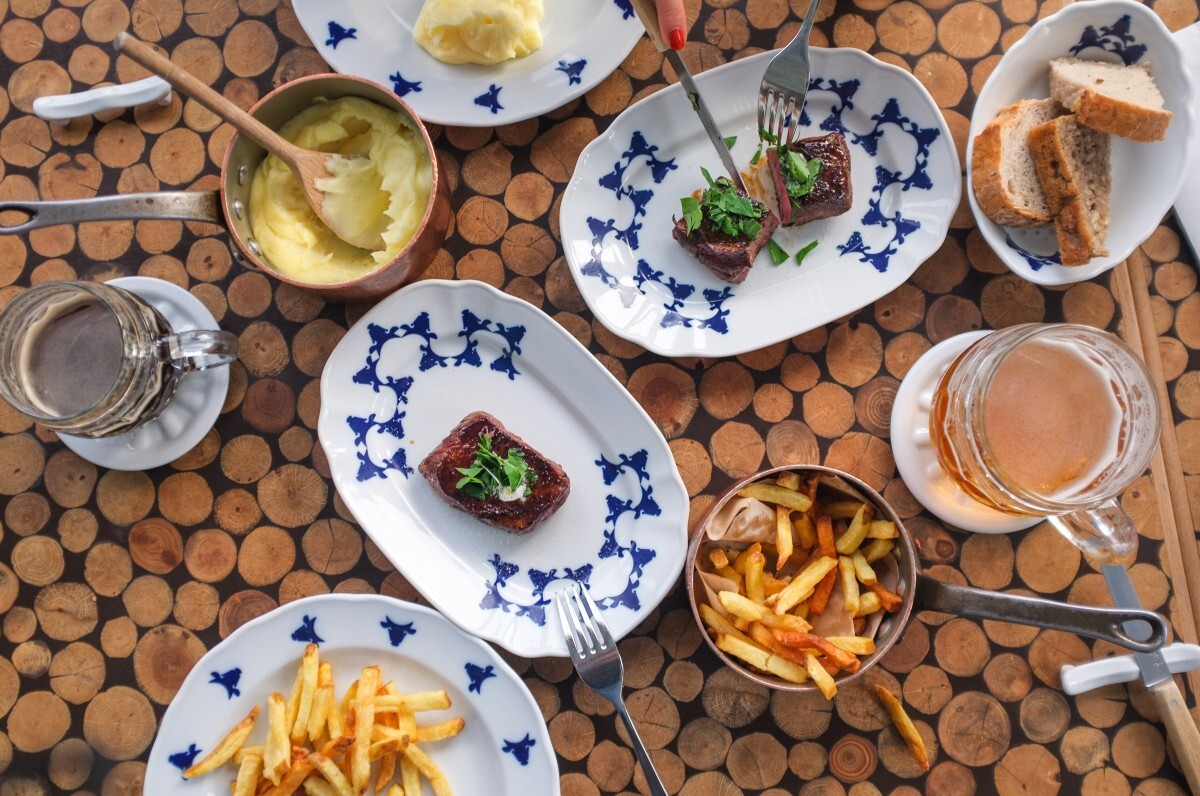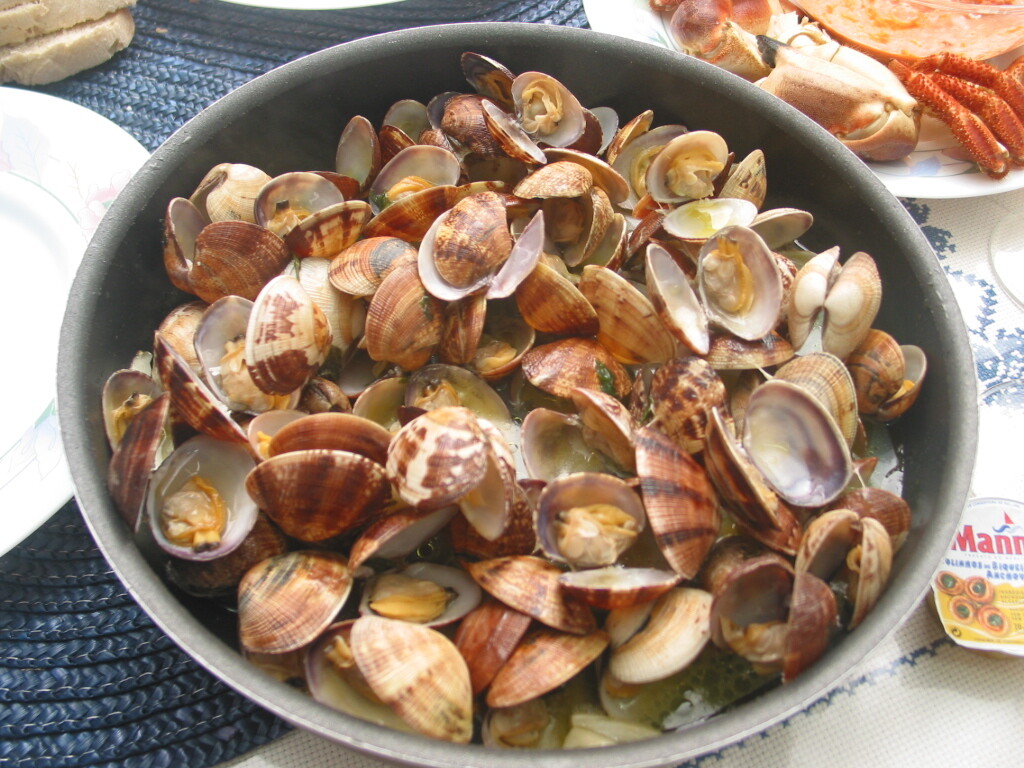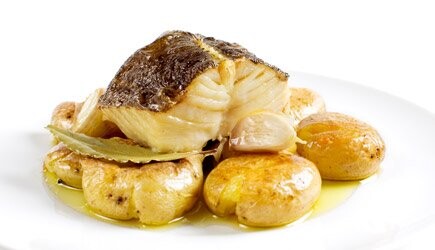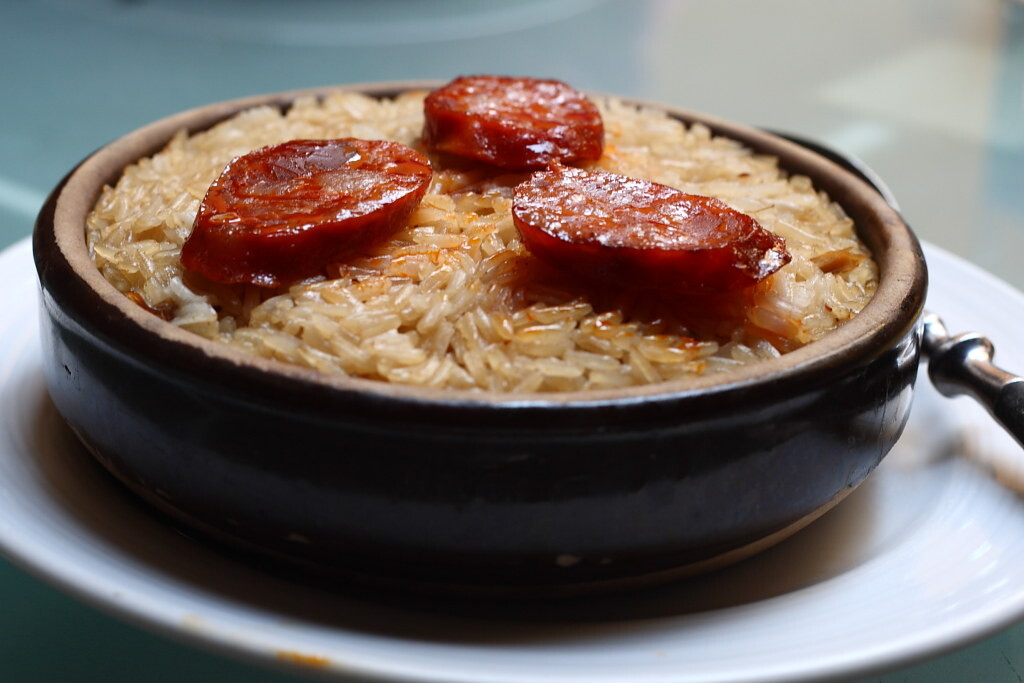Portuguese cuisine - The gastronomy of Portugal and traditional dishes
- Tips for studying abroad in Lisbon - Study abroad in Lisbon
- How to get to Lisbon - Getting to Lisbon by plane, train, bus or car
- Public transport in Lisbon - Getting around Lisbon
- Cost of Living in Lisbon
- Accommodation for students in Lisbon - Top tips and advice
- Save money in Lisbon - Tips for living on a student budget in Lisbon
- Lisbon neighbourhoods - The most important districts of Lisbon
- Nightlife in Lisbon - A guide to nightclubs and going out in Lisbon
- Portuguese cuisine - The gastronomy of Portugal and traditional dishes
- Where to eat in Lisbon - Gastronomy in Lisbon
- What to see in Lisbon - Top 10 Places to see in Lisbon
- What to do in Lisbon - The best things to do in Lisbon
- Festivals in Lisbon - Festivals and events in Lisbon
- Day trips from Lisbon - Places to visit and excursions around Lisbon
- Lisbon in 3 days - What to see in Lisbon in 3 days
The most amazing thing in Portugal are the dishes from the sea. So if you come to Portugal, you have to try grilled fish, cod, seafood, cooked fish and many other choices. The most famous dish is codfish “Bacalhau”, and we have a saying in Portugal: “We have a recipe for codfish for every day of the year”, and it's true! One of the things that we are really proud of is our variety.
Besides fish, we also like meat a lot. Our meat dishes are made with pork, sausages, beef, chicken and usually we eat it with rice, potatoes, pasta, vegetables or salads.

Besides the main dish, we have a lot of ingredients that without them you can’t cook Portuguese food. Olive oil is one of them, with a very high quality it is included in every dish. We can’t forget to mention the wine, which is an important part of Portugal. The country is known in the world because of the amazing wine, and it’s something that you will see on every table in Portugal. Cheese is something that we can’t also dismiss, as we have so many types of cheese from all over the country, the most iconic one is the mountain cheese from Serra da Estrela, you have to try it! The typical Portuguese person loves to eat sweets, and you will find an enormous variety of sweets to try. This depends on the region, and also on the city, there are so many and they are all so different, but the most known in Portugal is the emblematic “Pastel de Nata”. Don’t forget to try the Portuguese coffee, as is a huge tradition in Portugal, and you will always see the coffee shops full of people, drinking coffee, which we drink as an espresso.
The Portuguese gastronomy is really rich and delicious, and every region in Portugal has its own characteristics, so you have a lot to choose from.
Appetizers or first dishes
These are the products that we normally have as appetizers: Portuguese people eat this before the main dish: Cornbread (in Portuguese ~ Broa), Olives, Cheese, Octopus Salad, Chorizo, Alheira, Toasts, among others.
Soups: The typical thing to do in Portugal is eating some soup before every meal, so you will find an enormous variety of soups.
-
The most typical one is “Caldo Verde” (the main ingredients are cabbage, Portuguese chorizo and potatoes);
-
“Sopa da Pedra” (with beans, different meats and chorizo);
-
“Sopa de Peixe” (the main ingredient is different types of fish and cubes of fried bread)
-
“Canja de Galinha” (soup of chicken with rice), but come and find all the soups, but keep in mind that the soups will depend on the region.
Main dishes in Lisbon
Seafood and Fish
This is one of the most typical Portuguese dish. Since our country is bathed by the Atlantic Ocean you have a lot of dishes with seafood and fish, with high quality, fresh products, and with an amazing taste. There are a lot of people that usually say that they don’t like fish. My advice for you is to give it a chance, because here the fish has a lot of quality, and it can really surprise you.

The best regions, or cities, to try seafood and fish, are the ones that are close to the sea, because there the products will be fresher and is where the people know better how to cook it. Some of the most known cities, or regions, for this are: Algarve (all the region is known for having the best fish of the country. Try to look for the cheapest places, because this region is really touristic and sometimes the prices can be inflated); Nazaré (a place known for the big waves and for the beach, is also where you can find really good fish); Setúbal (the city with beach, is a great place for also try this dishes, with high quality and not that expensive), among so many others places, this is something that you can’t skip.
First we are going to talk about the dishes with seafood:
-
Arroz de Marisco (Seafood with Rice);
-
Polvo à Lagareiro (a dish with octopus and potatoes in the oven);
-
Açorda de Marisco (the main ingredients in this dish are seafood, bread, parsley and eggs);
-
Arroz de Tamboril (a dish that is cooked with monkfish, shrimps, rice and spices);
-
Cataplana de Marisco (a recipe that contains fish, clams and shrimps);
-
Amêijoas à Bulhão de Pato (this is made with boiled clams, coriander, lemon, olive oil, garlic and salt, and it’s a great thing for you to try) this are just some of the dishes, because you have a lot more.
And now we will talk about the main fish dishes, that are a must for you to try:
-
Sardinhas Assadas (Roasted Sardines, this is a thing that usually we eat with bread, or boiled potatoes, if you are going to Lisbon, I would advise you to try this during the Celebrations of the Saint S. António);
-
Salmão Grelhado (Salmon, and we also grill the salmon, and we eat it with boiled potatoes, and the flavour is really good, specially if you’re a fan of fish);
-
Peixe no Forno (Fillet of fish in the oven, the side dish is vegetables and potatoes, and then everything together goes to the oven).
Codfish: Codfish is our favourite and most important dish. We have a saying that is Portuguese people have a codfish recipe for every day of the year, and this is for real. Codfish is in every restaurant, every school canteen, in the supermarkets and also is one of the main dishes for Christmas Day.

-
Bacalhau à Gomes de Sá (this is a quick recipe, that is made with boiled codfish, potatoes and eggs, and then you add onion, garlic, pepper and olives);
-
Bacalhau à Brás (made with codfish and small and fine fried potatoes);
-
Pastéis de Bacalhau (the literal translation is fried codfish pastels, and it’s a batter made of codfish, smashed potatoes and flour and then is going to fry)
-
Bacalhau de Natas (also a recipe with codfish, fried small potatoes, sour cream and then everything goes to the oven);
-
Bacalhau com Broa (the two main ingredients of this dish are cooked codfish and Broa, that is typical portuguese bread made with corn);
-
Bacalhau no Forno (made with codfish, potatoes, garlic, onion, olive oil, and then everything goes to the oven), among so many other recipes. The codfish that you try will depend on each region you are in, and also on the type of place, because there are recipes that are more fancy than others.
Meat
Meat is also an important part of Portuguese cuisine, and you will see that the Portuguese people eat much more meat than fish, because it can be cheaper and easier to prepare, depending on the dishes. The Portuguese meat dishes are really heavy and for foreigners it can be too much to eat, but compared to other countries Portuguese people eat a lot.
The way of preparing or the type of meat, depends a lot on the region, and sometimes even from the city. Expect to find different types of meat all over the country, like pork, beef, lamb, chicken, turkey, duck, goat, mutton and calf. To be honest Portuguese eat everything, like all the parts of these animals, but don't worry because in the restaurants you have many options.
I’m going to talk about some of the main dishes and the most typical way to cook it, so you can have a more or less idea how to do it, but keep in mind that depends on the region, because the species and the flavour can be really different.
-
The first dish that I’m going to talk about is Cozido à Portuguesa (for meats lovers this is the ideal dish, because it has a little of almost every meats, like pork, beef, chicken, chorizo and farinheira and it’s cooked with potatoes and a lot of different vegetables);
-
Feijoada (the main ingredient is meat, chorizo and red beans, this meal is also really heavy, but really tasty, and one of the most typicals in Portugal);
-
Arroz de Pato (it means duck with rice, and it’s a great dinner for you likes something lighter, also usually it’s decorated with chorizo);

-
Rojões (this is basically pork meat with some fat, and then cooked with garlic, onion, wine and you can eat it with potatoes)
-
Bitoque (this is a typical Portuguese dish, and you can find this dish in every restaurant in Portugal. Usually the students eat this when they are going to their academic dinners, because it’s heavy and it has everything that a typical student likes. It’s a dish with steak, starry egg, rice, fry potatoes and salad);
-
Francesinha (if you want to try this dish you have to eat it in Porto, because it’s typical from the city. This is a really complex dish, and usually foreigner people can’t eat everything, because it is one of the most heavy dishes that we have. The main ingredients are bread, beef, sausages, beer, wine and cheese);
-
Carne de Porco à Alentejana (this dish is perfect for people that love seafood and meat, because it’s made with pork meat, clams and fried potatoes, it’s something that you really need to try, it’s completely different and really typical).
Desserts
Portugal is a country full of traditional desserts, and this depends totally on the region, so you have a lot of different sweets to try. These desserts are known on an international level, and I guarantee you that they will leave you mouthwatering.
-
The most known, and you can find this is in every place of Portugal is Pastel de Nata(the most famous are the ones in Belém, but usually Portuguese people prefers the ones that are in the Camões Square, in a place call Manteigaria, the place is less crowded and they already win a lot of awards.

-
Torta de Azeitão is also really typical, it’s made with eggs, flour and sugar, it’s a really sweet dessert, typical from the Azeitão’s region.
-
Salame de Chocolate is something that is also known in other countries, but in Portugal we eat it a lot. In English is called chocolate’s salami, and it’s made with cookies, chocolate, butter and sugar.
-
Arroz Doce, usually Portuguese people think that this is really traditional, but the truth is that other countries also have it. The main ingredients are rice, sugar, milk and in the end you decorate it with cinnamon.
-
Pão de Ló, this is something that you only can find in Portugal, and it’s similar to a sponge cake. It’s made with sugar, eggs and flour, and sometimes has a cream, and in my opinion that one it’s the best.
-
Ovos Moles is a really sweet dessert, and to eat this you have to go to Aveiro, a city also known as “Small Veneza”, and besides this dessert is a place that is worth seeing.
-
Queijadas de Sintra, go to Sintra and try this sweet, it’s really good, in my opinion one of the bests, and you need to go to this city to try it, because it’s unique. Bolas de Berlim, the funny thing about this sweet, is that the best ones that you can eat are sold on the beach, and it’s basically a sweet made of flour and sugar and inside it has an egg cream. If you go to the beach in Portugal you will see people selling this, and usually it costs no more than 1 euro (depending on the place), it’s a must because is so Portuguese eat a Bola de Berlim on the beach, eat it during the afternoon, and have a snack.
-
And of course we can’t forget our lovely islands, in Madeira you have the traditional Bolo do Caco and in Azores the Bolo Lêvedo.
- Return to Nightlife in Lisbon - A guide to nightclubs and going out in Lisbon
- Continue to Where to eat in Lisbon - Gastronomy in Lisbon
Photo gallery
Want to have your own Erasmus blog?
If you are experiencing living abroad, you're an avid traveller or want to promote the city where you live... create your own blog and share your adventures!
I want to create my Erasmus blog! →




















Comments (0 comments)